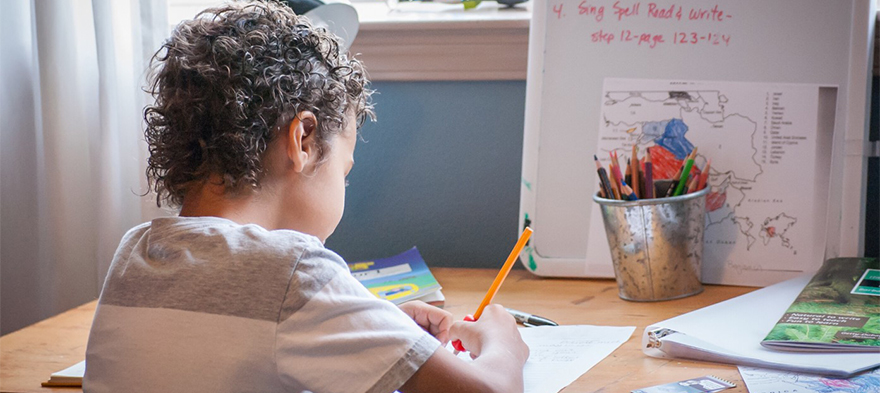
We realized our philosophy wasn’t matching our discipline, and we said, ‘If we’re so much about the students and focusing on who they are and what they want to be, how is us sending them out of school and kicking them out of class fulfilling that dream?’After working on these issues, Dominique said:
Our attendance rate is high; our students want to be here; they respect what is going to happen; and they know that if they are having a hard day and they do make a poor choice, they are not going to be excluded from the school.Ian Pumpian, CEO and president:
We had established a ‘do no harm’ pillar as a way of developing a basic concept of how we expected every adult and every child in the school to behave. A few years later, when we started studying restorative practices, it gave us a system to really teach, and put into place procedurally, all the things we intended when we had that ‘do no harm’ pillar. We provided a lot of resources around professional development to understand and support restorative practices. But the cost of not doing that, in terms of dollars, in terms of school effectiveness, in terms of school culture, is far greater. It’s the best expense I’ve ever gone to our board to ask for.
Discipline really sets the tone for the whole school…We know that nothing is more important in a school than its culture. My advice is: invest highly in your students. Invest in relationships. The number one factor in improving school culture and discipline is having those relationships with your students.
We have evolved quite a bit because we really try to be responsive to what works for kids. When we started out as a network you could have described our schools as more of the ‘no-excuses/zero-tolerance’ type of approach. What we found pretty quickly was that that worked for a certain group of students, but there was another group of students that were not responding to that approach.Amanda Aiken, principal of Lawrence D. Crocker College Prep:
Ninety-eight percent of our students are living in poverty. About 65 to 70 percent of our students had experienced trauma within the past two years. Those numbers just created a sense of urgency…Five days a week students are getting some type of social-emotional wellness through community building. Really we just decided to prioritize it, and we decided that 30 minutes a day was really important, and actually that 30 minutes a day is saving us time in the long run, when we are able to be proactive in our discipline rather than reactive.
To do this right takes three to five years—to get the systems, to get the buy-in, and then it takes forever to keep it going. School leaders who want to implement this in their school have to put a stake in the ground, they have to own it, they have to expect a process to occur. It’s not like ‘Let me give you this brochure, you read it and you know what it’s about.’ The restorative process is about doing things with people; and that takes time, patience, and education.There are more materials available to help anyone interested in implementing alternative discipline strategies. The NCSRC has produced: a report that explains the context and results of the featured schools, the particular models they have adopted, and the lessons they learned while implementing their chosen approach; a toolkit that provides resources and materials schools can use in their own efforts to identify, craft and implement stronger disciplinary practices; and a webinar with researcher, authorizer and school perspectives on alternative discipline. Please check them out.
Mukta Pandit is president of Safal Partners Inc., one of the premier education consulting firms in the nation. She has led multiple engagements with federal, state, foundation and non-profit clients including the U.S. Department of Education, Bill & Melinda Gates Foundation, Laura and John Arnold Foundation, Texas Education Agency, and Houston Independent School District. Mukta is currently serving as project director for the National Charter School Resource Center. Prior to founding Safal, Mukta was with the Michael and Susan Dell Foundation for five years, where she led the foundation’s expansion efforts in U.S. education and launched international giving in India and Africa. Prior to MSDF, Mukta was an engagement manager at McKinsey & Co. Prior to McKinsey, Mukta served extensively in Information Technology. Mukta holds an MBA from the Wharton School of Business, where she graduated in the Top 5% of her class as a Palmer Scholar. She lives in Houston, Texas and is a proud mother of twin girls.
If you have a child with disabilities, you’re not alone: According to the latest data, over 7 million American schoolchildren — 14% of all students ages 3-21 — are classified as eligible for special...
The fight for educational equity has never been just about schools. The real North Star for this work is providing opportunities for each child to thrive into adulthood. This means that our advocacy...
The story you tell yourself about your own math ability tends to become true. This isn’t some Oprah aphorism about attracting what you want from the universe. Well, I guess it kind of is, but...
Your donations support the voices who challenge decision makers to provide the learning opportunities all children need to thrive.
Ed Post is the flagship website platform of brightbeam, a 501(c3) network of education activists and influencers demanding a better education and a brighter future for every child.
© 2020–2024 brightbeam. All rights reserved.